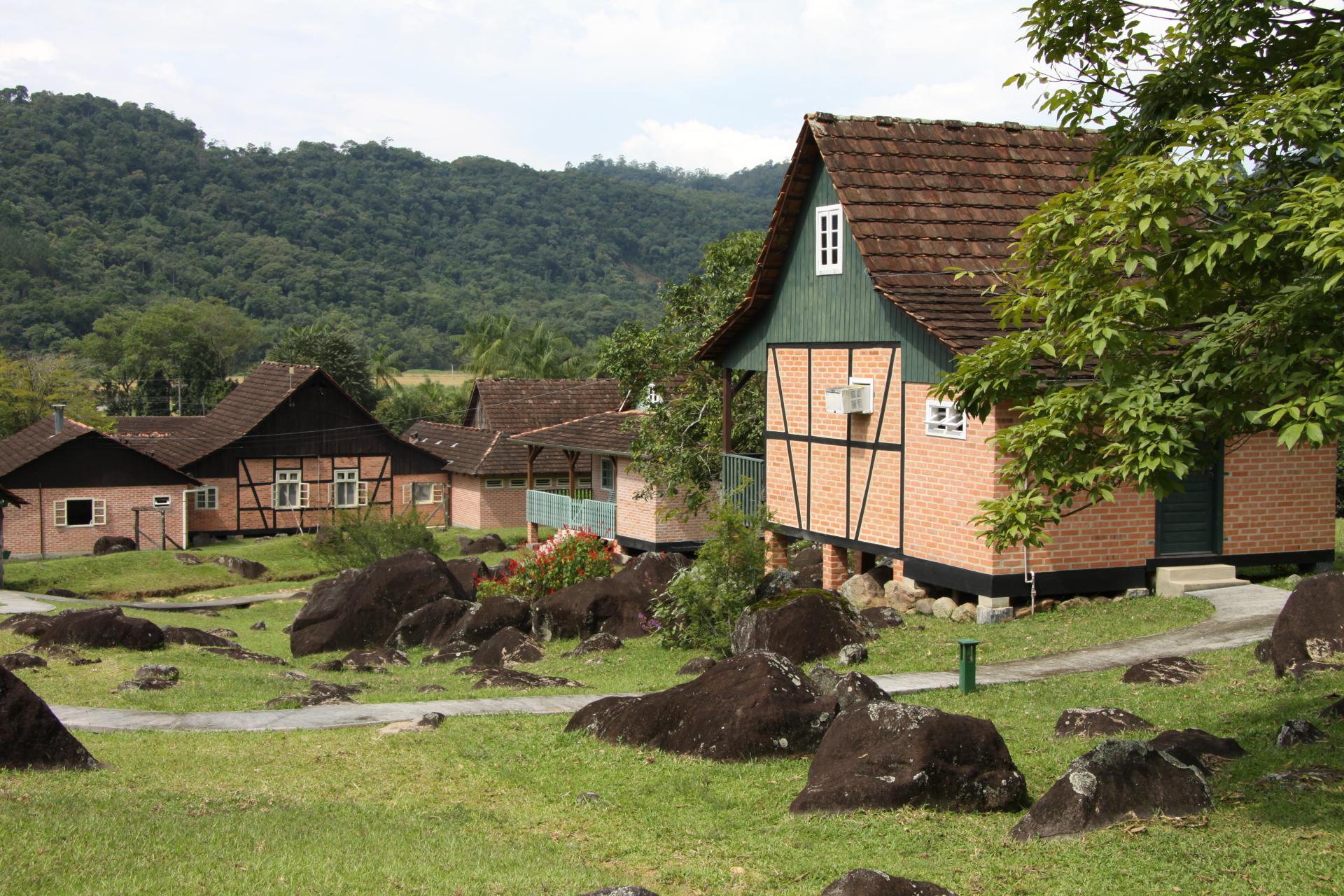The Historical Legacy of German Immigration in Southern Brazil: Traditions, Culture, and the Famous Oktoberfest

Southern Brazil, known for its lush landscapes and cultural diversity, still bears the marks of German immigration from the 19th century. From towns with charming half-timbered houses to festivals that honor German traditions, the region reflects the heritage of over 250,000 German immigrants who primarily settled in the states of Santa Catarina, Rio Grande do Sul, and Paraná. This article explores the history of German immigration, the towns founded by them, the vibrant traditions that are still celebrated today and why you should visit the legacy of German Immigrants during your Brazil vacation.
The History of German Immigration
The first significant wave of German immigrants arrived in Brazil in the early 19th century. Economic hardship, political upheaval, and the dream of a better life overseas drove many Germans to emigrate. The Brazilian government provided land and support to encourage settlement in the underdeveloped southern regions of the country.
The German immigrants brought their language, culture, and traditions, which gradually integrated into Brazilian life. They made substantial contributions to agriculture, industry, and education. Towns such as Blumenau, Joinville, and Novo Hamburgo became hubs of German culture, preserving this heritage to the present day.
Blumenau – The German Capital of Brazil
Blumenau, a city in the state of Santa Catarina, is one of the most well-known centers of German culture in Brazil. Founded in 1850 by German pharmacist Hermann Blumenau, the city is famous for its half-timbered architecture, breweries, and, of course, the renowned Oktoberfest, which attracts thousands of visitors annually.
The Oktoberfest in Blumenau
Blumenau’s Oktoberfest, inspired by the original in Munich, is the second-largest festival of its kind worldwide. Held every October, it features traditional German music, dances, food, and beer. Participants, often dressed in traditional attire such as Dirndl and Lederhosen, celebrate German-Brazilian culture with a blend of tradition and Brazilian flair.
Joinville – The City of Flowers and Traditions
Joinville, also in Santa Catarina, is another city with a strong German influence. Initially settled by German and Swiss immigrants, Joinville is now a hub for art and culture. It is renowned for its dance festival, the largest of its kind in Latin America, and its meticulously maintained gardens, reflecting the settlers' deep appreciation for nature.
Novo Hamburgo – Brazil’s Shoe Capital
In the state of Rio Grande do Sul lies Novo Hamburgo, a city founded by German immigrants that quickly became a center of shoe production. Its name pays homage to the Hanseatic city of Hamburg, where many of the original settlers originated. Today, Novo Hamburgo is a significant industrial hub while preserving its German roots through festivals, culinary traditions, and cultural celebrations.
German Traditions in Southern Brazil
The German immigrants brought their customs and traditions to Brazil, many of which are still celebrated in southern Brazil today. These include:
- German Cuisine: Dishes like sauerkraut, bratwurst, apple strudel, and rye bread are widely enjoyed and often served at local restaurants and festivals.
- Folk Festivals: In addition to Oktoberfest, numerous smaller festivals celebrate German traditions such as brass music, folk dancing, and beer culture.
- Language: While the number of German speakers has declined, some rural communities still speak a German dialect known as "Hunsrückisch".
- Farmhouses and Churches: Many of the half-timbered houses and churches built by German settlers remain preserved as historical landmarks.
Why Experience German Heritage in Southern Brazil?
For travelers looking to delve into Brazil’s cultural diversity, visiting towns shaped by German immigration is a must. Whether celebrating at Blumenau’s Oktoberfest, enjoying traditional German cuisine, or exploring historic architecture, the German heritage of southern Brazil offers a unique blend of tradition and modernity.
A Unique Slice of Germany in Brazil
The historical legacy of German immigrants is a vibrant and integral part of Brazil’s cultural diversity. In towns like Blumenau, Joinville, and Novo Hamburgo, German culture is authentically and creatively preserved while blending with Brazilian influences. For history and culture enthusiasts, a Brazil trip to this region offers an enriching experience – and a unique piece of Germany in the heart of South America.
Sources: https://www.oktoberfestblumenau.com.br, https://www.joinville.sc.gov.br, https://whc.unesco.org

